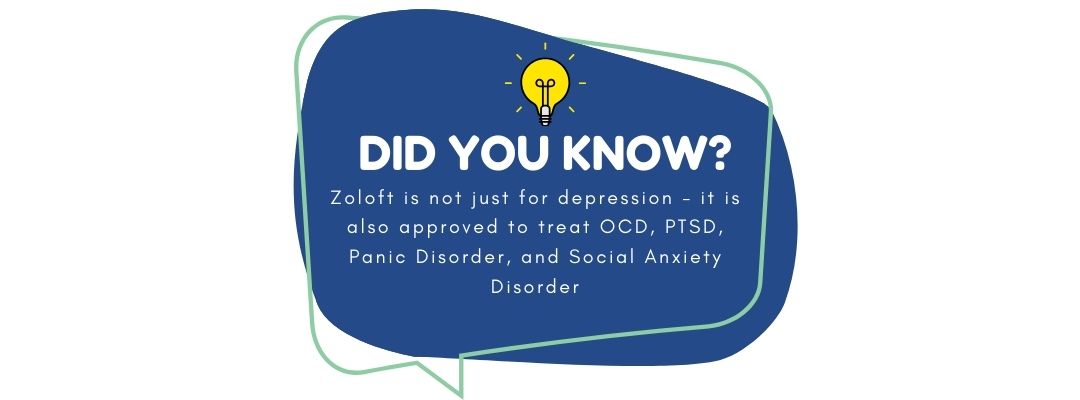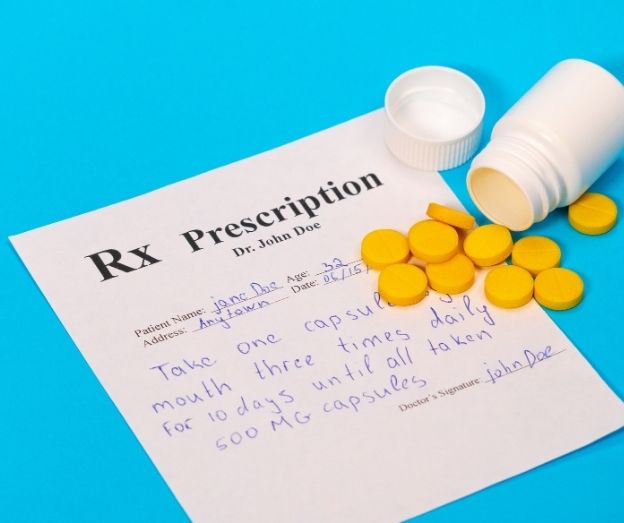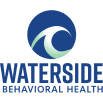Is Zoloft Addictive? Understanding Its Potential for Dependence
Is Zoloft Addictive? Zoloft is a commonly prescribed antidepressant that many people consider for managing their mental health. While Zoloft is not considered addictive like some drugs, it can lead to dependence in certain cases, particularly with long-term use. Understanding these dynamics is essential for anyone starting or currently using this medication.
Patients often have concerns about the potential risks of taking Zoloft. By exploring how Zoloft works in the brain and examining its effects compared to other antidepressants, they can make informed decisions about their treatment options and foster a healthy relationship with their medication.
Key Takeaways
- Zoloft can help treat various mental health conditions effectively.
- It is not addictive in the same way as substances like opioids or alcohol.
- Dependence can occur with long-term use, so proper management is important.
What Is Zoloft?
Zoloft is a prescription medication used primarily to treat depression. It belongs to a class of drugs called Selective Serotonin Reuptake Inhibitors (SSRIs).
This medication helps increase serotonin levels in the brain. Serotonin is a neurotransmitter that plays a key role in regulating mood and emotions.
Zoloft is also prescribed for anxiety disorders, obsessive-compulsive disorder (OCD), panic disorder, and post-traumatic stress disorder (PTSD).
Forms of Zoloft include tablets and liquid solutions. Patients may receive doses based on their individual needs and health conditions.
Common side effects can include nausea, insomnia, dry mouth, and dizziness. It’s important for patients to discuss potential side effects with their healthcare provider.
Zoloft is not considered physically addictive. However, some individuals may develop a psychological dependence if they use it for a long time. It is crucial to follow a doctor’s advice when starting or stopping the medication.
In 2022, Sertaline, commonly known as Zoloft, was the 11th most prescribed medication in the Unites States, with nearly 40 million prescriptions filled. (Source: ClinCalc)
Zoloft’s Mechanism of Action
Zoloft, known generically as sertraline, is a selective serotonin reuptake inhibitor (SSRI). It primarily works by increasing the levels of serotonin in the brain.
Serotonin’s Role
Serotonin is a neurotransmitter that influences mood, anxiety, and happiness. By blocking the reabsorption (or reuptake) of serotonin, Zoloft allows more serotonin to remain available in the brain.
How It Works
- Inhibition of Reuptake: When serotonin is released into the synaptic cleft, Zoloft prevents its return to the presynaptic neuron.
- Increased Serotonin Levels: This inhibition leads to higher levels of serotonin in the synaptic cleft, enhancing mood and reducing anxiety.
Applications
Zoloft is used to treat various conditions, including:
- Major depressive disorder
- Obsessive-compulsive disorder (OCD)
- Panic disorder
- Post-traumatic stress disorder (PTSD)
Though Zoloft primarily affects serotonin, it may also influence other neurotransmitters, but its main action remains on serotonin. Understanding this mechanism helps clarify how Zoloft supports mental health and well-being.

Potential for Dependence
Zoloft, an antidepressant, can lead to dependence in both physical and psychological ways. Understanding these aspects is crucial for anyone considering long-term use.
Physical Dependence
Physical dependence on Zoloft may occur when the body becomes accustomed to its presence. When someone has been taking Zoloft for an extended period, stopping suddenly can lead to withdrawal symptoms. These symptoms might include dizziness, insomnia, fatigue, and even flu-like effects.
Gradually tapering off the medication under medical guidance can help manage these withdrawal symptoms. This approach is essential to minimize discomfort and ensure safety. Regular monitoring by a healthcare provider during this process is important for a smoother transition.
Psychological Dependence
Psychological dependence refers to a reliance on Zoloft to manage mood and emotions. Many users may feel unable to cope without the medication. This feeling can result from fear of returning symptoms like anxiety or depression.
Individuals may also develop a routine where Zoloft becomes a central part of their daily life. They might struggle with feelings of normalcy when not taking the medication, leading to ongoing use. Support from mental health professionals can be beneficial in addressing these feelings and reducing reliance on Zoloft.
Comparing Zoloft With Other Antidepressants
Zoloft, known as sertraline, is part of a group called selective serotonin reuptake inhibitors (SSRIs). It is commonly prescribed for depression, anxiety, and other mental health conditions.
When compared to other antidepressants, Zoloft shares similarities and differences. Here are key points to consider:
- Class of Drug: Zoloft is an SSRI, while others may be in different classes like SNRIs (e.g., venlafaxine) or atypical antidepressants (e.g., bupropion).
- Side Effects: Common side effects of Zoloft include nausea, insomnia, and sexual dysfunction. Other antidepressants might have different side effects, such as increased appetite with mirtazapine.
- Onset of Action: Zoloft generally takes several weeks to show effects. Some antidepressants, like bupropion, may have a quicker onset for certain individuals.
- Addiction Potential: According to research, Zoloft is not considered addictive like benzodiazepines. Other antidepressants may also carry low risk for addiction, but misuse can occur.
- Weight Gain: Some studies suggest Zoloft is less likely to cause weight gain compared to medications like mirtazapine or tricyclic antidepressants.
Doctors often choose an antidepressant based on individual needs. They consider efficacy, side effects, and personal health history to find the best treatment. Each medication works differently, and what works for one person may not work for another.
Managing and Preventing Zoloft Dependence
To manage and prevent dependence on Zoloft, it is crucial to follow a healthcare provider’s recommendations. Patients should take the medication exactly as prescribed. Skipping doses can lead to feelings of anxiety or depression.
Regular check-ins with a doctor can provide valuable support. These appointments allow for monitoring of symptoms and medication effectiveness. Adjustments can be made based on individual needs.
Educating oneself about the medication is helpful. Understanding how Zoloft works can empower patients in their treatment. Reading reliable sources about its effects can create a better awareness of any risks.
Adopting healthy coping strategies is also key. Engaging in activities such as:
- Regular exercise
- Mindfulness practices
- Healthy eating
These can reduce reliance on medication and improve overall well-being.
When considering stopping Zoloft, it is vital to consult a healthcare provider. Gradual tapering may be necessary to minimize withdrawal symptoms. Patients should not stop taking the medication suddenly.
Support systems play a significant role in recovery. Reaching out to friends, family, or support groups can provide emotional assistance. These connections can help patients feel less isolated during their journey.
By combining medical guidance with personal wellbeing practices, individuals can effectively manage and prevent Zoloft dependence.
Conclusion
Zoloft, also known as sertraline, is an antidepressant that many people use for various mental health conditions. It is important to clarify that Zoloft is not classified as an addictive drug in the same way that opioids or benzodiazepines are.
Some individuals may experience psychological dependence. This occurs when a person feels they need the medication to function normally.
Key Points:
- Zoloft can lead to tolerance, where the same dose may become less effective over time.
- Withdrawal symptoms may occur if the medication is suddenly stopped.
- Gradual dosage reduction under medical supervision is advised for safety.
Consulting a healthcare provider is crucial for anyone considering stopping Zoloft. They can provide guidance on how to manage dosage changes effectively.
While Zoloft is not addictive, it is essential to use it responsibly. Being aware of the potential for dependence can help people manage their treatment plans better.
Frequently Asked Questions
This section addresses common questions about Zoloft and its potential for addiction. It covers various aspects of dependency, risks associated with long-term use, and comparisons with other medications.
Can taking Zoloft lead to dependency?
Zoloft can lead to psychological dependence, especially when users rely on it to manage mood changes. Individuals may struggle to feel normal without the medication, which can create challenges if they decide to stop taking it.
What are the risks of long-term use of Zoloft?
Long-term use of Zoloft may lead to withdrawal symptoms if the medication is discontinued suddenly. Users might also experience exacerbated anxiety or depression if they miss doses. Therefore, it is crucial to consult a healthcare professional before making any changes to usage.
How does Zoloft compare to benzodiazepines in terms of addiction potential?
Zoloft is generally considered less addictive than benzodiazepines. Benzodiazepines can produce a “high” and have a higher potential for abuse, whereas Zoloft does not typically lead to euphoria or addictive behavior in the same way.
Are there any addictive properties associated with sertraline?
Sertraline, the active ingredient in Zoloft, has a low potential for addiction compared to many other drugs. While some users can develop dependence, it does not act like typical addictive substances that create strong cravings.
What should one know about the potential for addiction when prescribed Zoloft?
When prescribed Zoloft, it is crucial to be aware of the potential for dependency. Users should discuss any concerns with their healthcare provider, who can offer guidance on managing dosage and withdrawal.
How is Zoloft classified in relation to narcotics and opioids?
Zoloft is not classified as a narcotic or opioid. It belongs to a class of medications known as SSRIs, which are primarily used to treat depression and anxiety disorders without the same risks associated with opioid use.
Conclusion
Is Zoloft addictive? Well, zoloft is a valuable tool for managing mental health conditions, offering effective relief for many without the addictive properties associated with substances like opioids or benzodiazepines. However, it’s important to recognize the potential for physical or psychological dependence, particularly with long-term use. Proper medical supervision, gradual tapering when discontinuing, and open communication with healthcare providers can help minimize risks and maximize benefits. By understanding how Zoloft works and its role in treatment, individuals can make informed decisions and approach their mental health journey with confidence and support.
You’re not alone, and help is always within reach. Contact us today at (774) 619-7750 and take control over your mental health.




